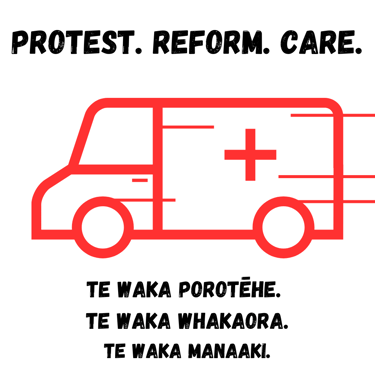Dr Art Nahill
Art was born just north of Boston, USA. He completed a psychology degree at Yale University and worked as a high school science and maths teacher for a number of years (as well as a landscape labourer, house painter, and roofer during the summer holidays!) before going to medical school. He completed his medical training in general medicine in the Harvard hospital system, and later worked in both the ambulatory and hospital settings with uninsured patients in the Boston area. He came to New Zealand with his Kiwi wife and two sons in 2005, working since then as a general hospital physician and medical teacher at Auckland, Middlemore, and occasionally Whangārei Hospitals. He has been writing poetry longer than he has been a doctor and has published extensively in both the US and New Zealand, including four book of poetry. He has also been a Health and Science correspondent for the Boston Globe newspaper and has published essays and letters in the New Zealand print media about health care reform.
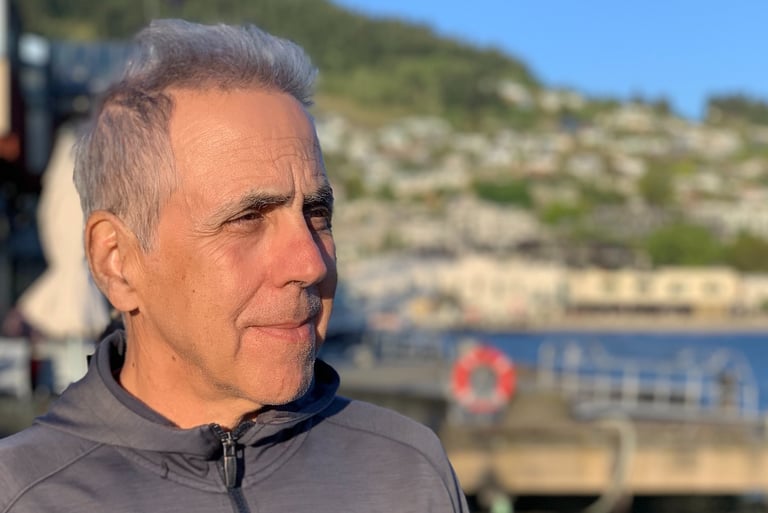

After nearly thirty years as a doctor, I have recently made the difficult decision to retire from clinical practice, not because I don’t still love caring for patients but because it has become exhaustingly difficult to give patients the care they expect and deserve within the New Zealand public health system.
Chronic staff and other resource shortages, constant management re-shuffling, increasing pressure to discharge patients quickly, often before they are truly ready: these are just some of the factors that contribute to substandard care.
And the current situation is the result of years of governmental neglect of our health care system and the erosive effects of the private health industry.
I am participating in this People’s Inquiry into the state of the public health system for three reasons:
As kind of "living poem" to express my anger and disappointment at the failure of successive governments to properly maintain the public health care system.
As a wakeup call to others that if we don’t demand a redesign of this failing system we are in danger of losing the public system, a national taonga.
To emphasise that the health system CAN be redesigned to provide better, more timely, and more equitable care. There are better and more sustainable models of health care already up and running internationally and even right here in parts of Aotearoa New Zealand.
Dr Glenn Colquhoun
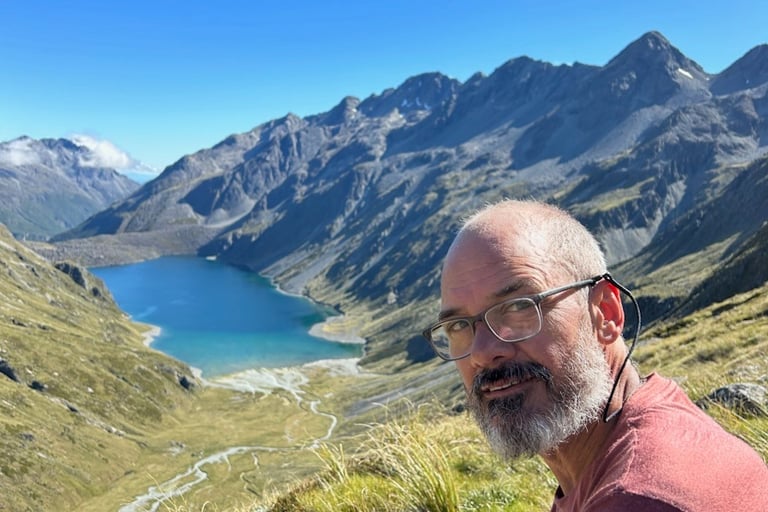

Glenn Colquhoun is a GP and poet. He works in adolescent health as a GP at the Horowhenua Youth Health Service. His first collection The art of walking upright won the Jessie Mackay best first book of poetry award at the 2000 Montana book awards. Playing God, his third collection, won the poetry section of the same awards in 2003 as well as the reader's choice award that year. He was awarded the Prize in modern letters in 2004 and a Fulbright scholarship to Harvard University in 2010. In 2012 he was part of the ‘Transit of Venus’ poetry exchange at the Frankfurt book fair and in 2014 represented New Zealand on the Commonwealth Poets United poetry project which celebrated the Glasgow Commonwealth Games that year. Ngā Wāhine E Toru / Three Women and Myths and Legends of the Ancient Pākehā, his examinations of oral poetry in New Zealand, were published in 2024.
For me the hīkoi is primarily about having care and respect for the New Zealand health system. I've loved being a doctor. It has been one of the great privileges of my life. And after more than 30 years of seeing patients and listening to their stories I have come to think of our health system as something that has a life force of its own. It has its own mauri. One that is assembled from every person living in our landscape. It carries our stories, our joys and sorrows, our beginnings and ends — all that is fragile, brave and tender in us as human beings. It offers succour and hope. We draw from it. And we give back to it. We are this river and this river is us.
But our current NZHS has been damaged by years of poor political management. A succession of governments over the last 25 years have been responsible for this. They have failed to display vision and leadership. They have turned it into a political football. The people of New Zealand deserve better.
To me the NZHS should be uplifted from politicians. It is too important to be left in the care of people who can't see what is alive or dead. The political process has shown no care for it. And no understanding of its mana. It should be redesigned and run by patients and clinicians with real world experience of the health system. It should make use of sound social science and medical expertise. It should make use of proven management principles. And Māori should be permanently represented at a governance level.
Our protest is a chance for people and clinicians in NZ to have their say about their health system. It’s not really for politicians. They have been one of the main causes of the breakdown in the current system.
I think artists in a sense bear witness. And it is something of the poet in both of us that has made us want to say something about our day jobs. I don’t think that’s entirely co-incidental. There is something in poetry that demands I think.
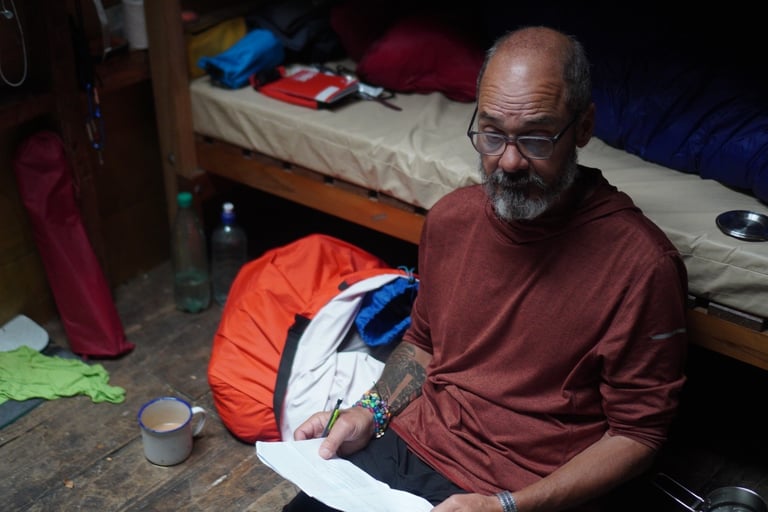

Anger into ACTION
Aroha to Raymond for generously sharing with us his knowledge, wisdom and cultural guidance. His insights and advice have informed much of what this hīkoi has become. Ngā mihi nui
Health care decisions should be driven by science and data, healthcare professionals and patients, NOT politics!
Health BEGINS in the Community
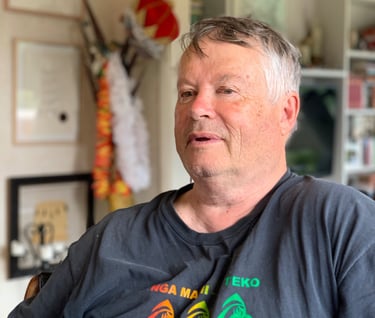

Nigel Brown, Artist
Nigel Brown is widely acknowledged as one of our most important figurative artists and most significant narrative painters. He graduated from Elam School of Fine Arts in Auckland in 1971, has exhibited nationally and internationally, and his works are held in important public and private collections including several in the National Collection at Te Papa. Nigel has received three Queen Elizabeth II Art Council grants, and been awarded the Order of New Zealand Merit. While viewers often respond to his content or intent, his distinctive style and handling of paint are part of the cut-through and reality of his message. Many works bring into question the way we live – issues of sustainability, and of finding intuitive rather than strictly scientific solutions – with his sharply ironic humour underpinning the delivery of his ideas.
Nigel has generously donated his time, immense talent, infectious laughter, and mana to this kaupapa. For that we are unspeakably grateful.
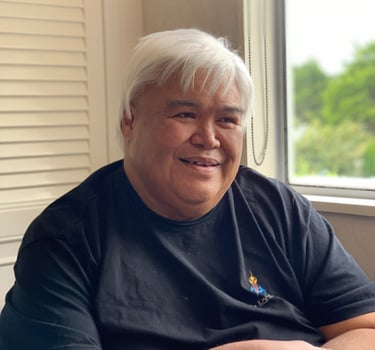

Raymond Kaiki Cultural Advisor
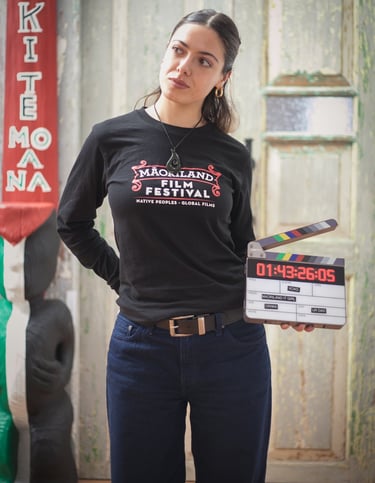

Oriwa Hakaraia Content Creator, Videographer
Oriwa works at Māoriland as the Pou Ruruku Rangatahi where her role is to connect Indigenous rangatahi to film pathways through the programmes that Māoriland offer. Oriwa facilitates filmmaking workshops for rangatahi across Aotearoa with Ngā Pakiaka, and programmes for the Māoriland Film Festival.
I’m joining this kaupapa as I feel like this is a pivotal time in Aotearoa’s history for our healthcare system to be lead properly, and for it to be shaped by the people it serves. Growing up in Ōtaki I've experienced and seen my whānau's trouble with accessing healthcare. There is already distrust within Hāpori Māori when it comes to the current system. By reshaping and building a better healthcare system that is safe for patients and practitioners that also incorporates a Māori world view, we can prevent further hurt and distrust amongst our communities.
Emily Cass Content Creator, Videographer
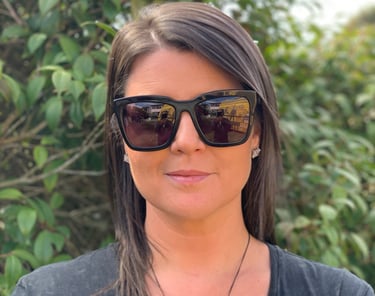

Juliette Wilson Kaimanaaki, Health Navigator
Many thanks to Jules for her help in procuring our van, cleaning it up (removing the old decals and cleaning the insides to a brilliant shine), and for introducing many of the rest of the team to the joys of air-frying!
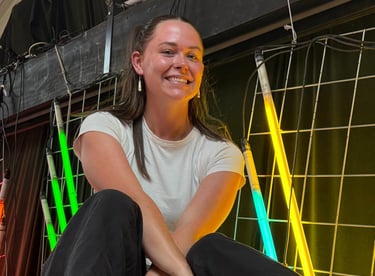

Kia Ora! Ko Emily ahau, Ko Rangitāne o wairau te iwi. I work at Māoriland Film Festival as an event coordinator. I am a proud takatāpui Wāhine, and have my own experiences navigating the healthcare system, being neurodivergent. I’ve also had the privilege to be surrounded by other young people, and learn about their personal experiences with our current healthcare system, and support them through what for many, is challenging waters. Growing up in Kāpiti, I am incredibly passionate about local iwi and hapū advancement in healthcare. I envision an Aotearoa where all people can access healthcare when they need it, without fear of barriers or delays.
